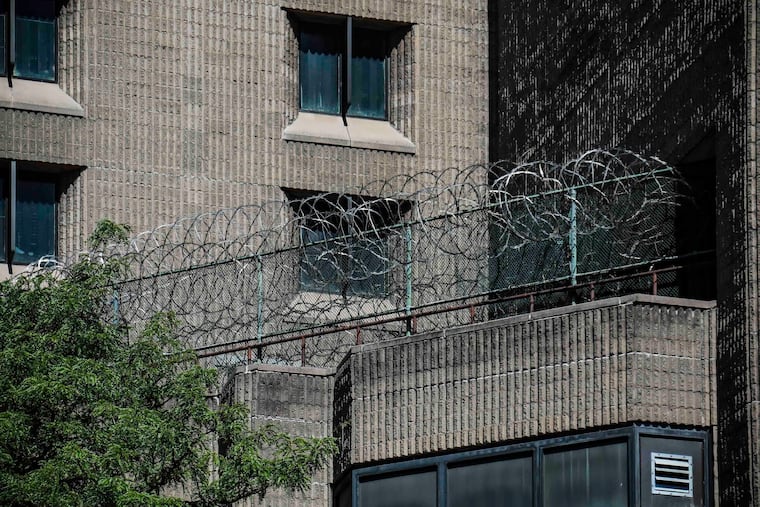16-hour workdays, plummeting morale: Staffing at Pa. prison is a crisis | Opinion
We desperately need more people working in our prisons to help keep everyone safe.

Everywhere you turn, workers are in great demand. From restaurants and retail stores to manufacturing plants and hospitals, employers need more staff to make sure their operations run safely and efficiently. Nowhere is the need for more staff more critical than in our state prisons. Our corrections officers stand between those who are incarcerated — including the most violent and dangerous criminals — and our communities. They also provide for security for everyone in a prison, including inmates and visitors.
Like many in law enforcement, our corrections professionals have had to overcome the extreme and stressful challenges of serving our communities during a once-in-a-century pandemic. As of last week, more than half a million people in prison have contracted COVID-19, in addition to nearly 200,000 prison staff. Corrections officers not only have the reasonable fear of getting sick themselves and bringing it home to our families, we also had to work hours and hours of overtime to cover for colleagues who became sick and could not work.
The staffing crisis in our state prisons has evolved into the single biggest problem that the Department of Corrections faces. In June, the Pennsylvania State Corrections Officers Association began gathering staffing numbers, at which point we needed to fill 399 positions. Late last year, our staff shortages skyrocketed to 707. Even though the pandemic has subsided, we are still short 690 staff members.
We desperately need more people working in our prisons to help keep everyone safe.
Our members are reaching their breaking points. Mandatory overtime is part of our job, but now our members are being mandated to work beyond reasonable hours — sometimes 16 hours a day — as often as four times a week. This should not be the norm, and it’s unacceptable.
By far, the largest number of job vacancies falls within our officer ranks. Simply put, our limited number of officers cannot sustain this workload. Even without massive amounts of overtime, this profession already takes a serious toll. Members are not just tired; they’re physically and emotionally broken. Many officers feel as if they live inside the prison. The work of corrections officers is dangerous and physical. We need time to decompress after a shift in order to properly do our jobs, but this is impossible when we’re regularly called in on our days off or forced to work 16-hour shifts multiple times each week.
“Our members are reaching their breaking point.”
Morale is at an all-time low. I’m seeing officers leave after just five years on the job due to burnout and stress. In the past, the average employee stayed for 25 years to receive permanent retirement benefits. The rapid turnover — and the inability to replace those who leave — has taken a massive toll on those of us who have stayed. Tragically, our ranks in Pennsylvania experienced five suicides in 2021.
Every job in a prison is vital. Our maintenance staff keep our institutions structurally sound and functioning. They also are a key component to public safety, maintaining various technological systems and physical barriers. We are also facing severe loss of staff in the culinary department, and disruptions in food service often lead to security issues inside our institutions. Interruptions in deliveries of produce and commissary items can lead to unrest. Prison staffing shortages make all of these issues worse.
Unfortunately, we have reasons to believe that the Wolf administration doesn’t want to invest in helping our members. Gov. Tom Wolf recently announced a $1.7 billion Pandemic Recovery Plan, which includes nearly a half billion dollars “to revitalize communities and address the growing threat of climate change,” according to his press release. But no dollars are directed to helping our state prison system and its overworked and exhausted employees, who have been at Ground Zero for the pandemic.
It doesn’t have to be this way. There are changes that could improve conditions and entice more people into corrections careers. Our state should hire employees directly from communities instead of from a centralized, statewide system. Relying on local people who know their communities leads to more empathetic officers and a more dedicated workforce.
Additionally, raising the entry-level pay of corrections officers is key to recruitment efforts. Currently, officers start at about $21 an hour, which means that officers can make just as much working in warehouses or other jobs that take less of a physical and emotional toll.
The Pennsylvania General Assembly should hold immediate hearings to work toward these solutions and identify others that will give our hardworking public servants the relief they desperately need.
John Eckenrode is the president of the Pennsylvania State Corrections Officers Association.